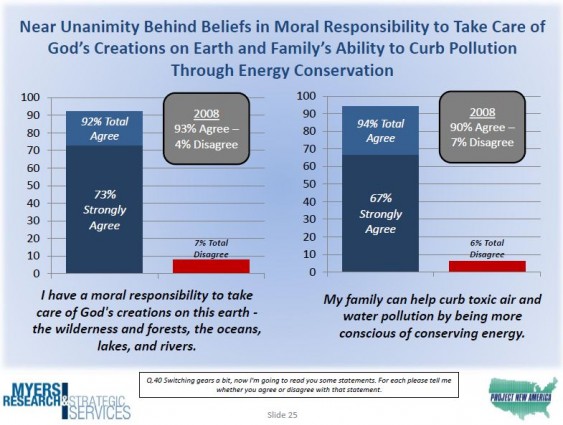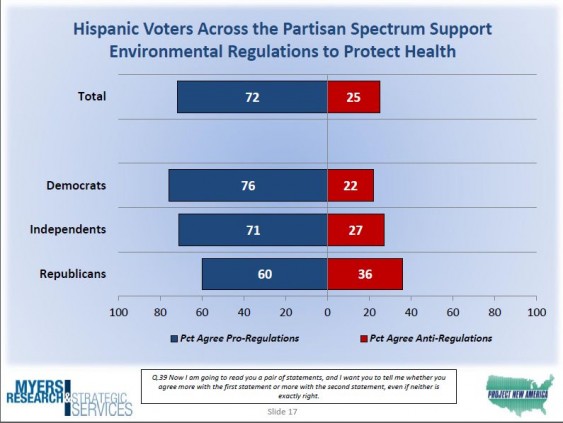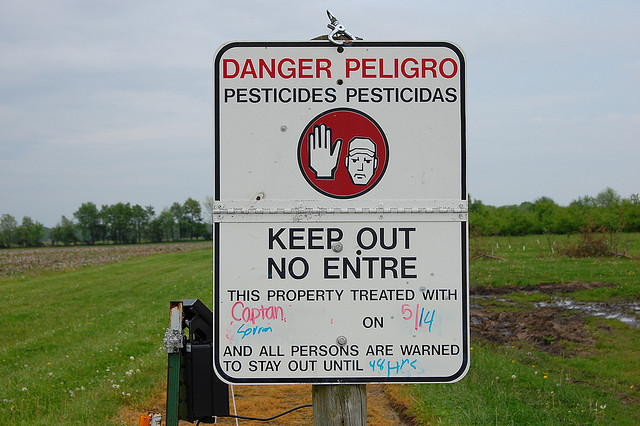For overwhelming numbers of Latino voters in the US, protecting the environment seems to be a very personal matter. It’s a matter of protecting families and the health of loved ones, safeguarding communities’ way of life, and taking responsibility for the future. It’s a matter of safe jobs and neighborhoods. It’s about being true to one’s core values. That’s the signal Sierra Club and National Council of La Raza received from recent focus groups and a national survey designed to gauge Latino voters’ opinions on environmental issues.
The findings reinforce results from other recent public opinion research as well as a similar survey by Sierra Club from 2008. In many cases, Latinos’ environmental attitudes have grown stronger in the past few years.
Here are some of the big takeaways:
- Latinos see the connection between pollution and public health—in a very personal way, including concerns about their families’ health.
- Most Latino voters strongly support environmental and public health protections.
- Climate change is a reality for big majorities of Latino voters.
- Parks and outdoor activities represent a Latinos want to protect and expand the nation’s public lands.
- Strong majorities favor clean energy over fossil fuels.
- Today, significantly more Latino voters report that they live or work near a toxic site than in 2008.
- Latinos in overwhelming numbers see protecting the environment as a moral responsibility, with important roles for government regulations as well as action by individuals—including energy conservation.
- A large majority of Latino voters say that environmental regulations protect our health.
Latino family values
Catherine Singley, senior policy analyst of National Council of La Raza, who talked about the research with David Minkow of Climate Access, believes that Latinos also tend to hold core values that predispose them to greener attitudes. She points to a strong sense of personal responsibility, faith, entrepreneurship, the importance of family and community, and doing the right thing “because it’s the right thing to do.”
Indeed, more than 9-in-10 (92 percent) Latino voters agreed that they “have a moral responsibility to take care of God’s creations on this earth—the wilderness and forests, the oceans, lakes and rivers.”

Environmental concerns are personal
Beyond deeply held core values, the research also points to lived experience that may shape environmental attitudes for many Latinos.
According to the Center for Disease Control, Latinos are 30 percent more likely to suffer from asthma, as compared to non-Hispanic whites. And in this survey, nearly half (47 percent) of all respondents reported that they or someone in their immediate family suffers from asthma, and 2-in-5 (41 percent) say they or an immediate family member has dealt with cancer.
This survey found that 43 percent of Latino voters say they live or work near a toxic site, such as a refinery, a coal-fired power plant, an incinerator, an agricultural field, a major highway, or a factory. This represents a significant increase since 2008, when 34 percent reported living next to this kind of site.
The survey found that pollution of our air and water resources is still the top environmental concern for Latino voters nationwide, with 61 percent saying it is among the top two environmental issues for them and their families. Since 2008, concern about air and water pollution and toxic waste sites has grown by 10 percentage points.
And more than 7-in-10 (72 percent) Latino voters agree that “environmental regulations protect our health and our families by lowering toxic levels of mercury, arsenic, carbon dioxide and other life-threatening pollution in our air and water.”
It’s notable that Hispanic voters across the partisan spectrum support environmental regulations to protect health, with healthy majorities of independents and Republicans sharing this view.

Outdoor recreation is also a personal matter for many Latino voters. Nearly all Hispanic voters view outdoor activities as part of their community’s way of life. In fact, 91 percent agree that “protecting land and water protects my culture, my family, and my community.” (66 percent strongly agree; only 9 percent, total, disagree.)
More than 9-in-10 Latino voters (94 percent) say outdoor activities such as fishing, picnics, camping, and visiting national parks and monuments are important to them and their families. Nearly 7-in-10 (69 percent) Latino voters say they would support the president designating more public land as national monuments.
Ahead of the curve on climate
More than three-fourths (77 percent) of Latino voters believe that global climate change is already happening, while another 15 percent say it will happen in the future. By comparison, about half (52 percent) of all Americans say that the effects of global warming have already begun, according to a Gallup poll conducted in March.
On climate, it’s notable that 8-in-10 self-identified Republican respondents “believe climate change is either already happening or will happen.” And three quarters of Hispanic voters are either very or somewhat concerned about climate change.
What it all means
Sometimes it seems that surveys like this one put words in peoples’ mouths. (And they do. A typical question asks whether respondents agree or disagree with a certain statement. And for comparison’s sake, the statements must often remain consistent across surveys.) But the numbers here are convincing no matter what. When you have agreement in the 80s and 90s—you can safely say the words are working to articulate respondents’ sentiments.
And better yet, Sierra Club polling and research strategist Grace McRae told me that the participants in the focus groups responded well to the survey’s language and repeated it during the discussions. She also noted that the words “protection” and “responsibility” came up repeatedly (and unprompted). And she echoed the survey findings that many environmental issues “boiled down to protecting the environment and their communities” and participants’ “own responsibility to protect their families by supporting environmental protections.”
As McRae put it, even if the exact words “moral obligation” weren’t used by participants, many expressed the idea by talking about God—and the environment as part of “His” creation. One participant put it this way: “God left us this legacy and we have to take care of it, not destroy it.”
Those are powerful words. But as Marisa Treviño of Latina Lista shrewdly put it, as with any voting bloc, “it’s one thing to agree with general statements but another to put specifics into practice.” The good news, she writes, is that the majority of Latinos want to do the right thing. But “until people are told how, step-by-step, and it’s made convenient to comply, good intentions are all that will be recorded for improving the health of the environment.”
Still, politically, good intentions on the part of Latino voters may go a long way. As Lisa Hymas recently pointed out on Grist, with Latinos expected to make up 25 percent of the US populace by 2050, up from 15.5 percent in 2010, the population’s green-leaning views could indeed be good news for our air, water, health, and climate.


Comments are closed.